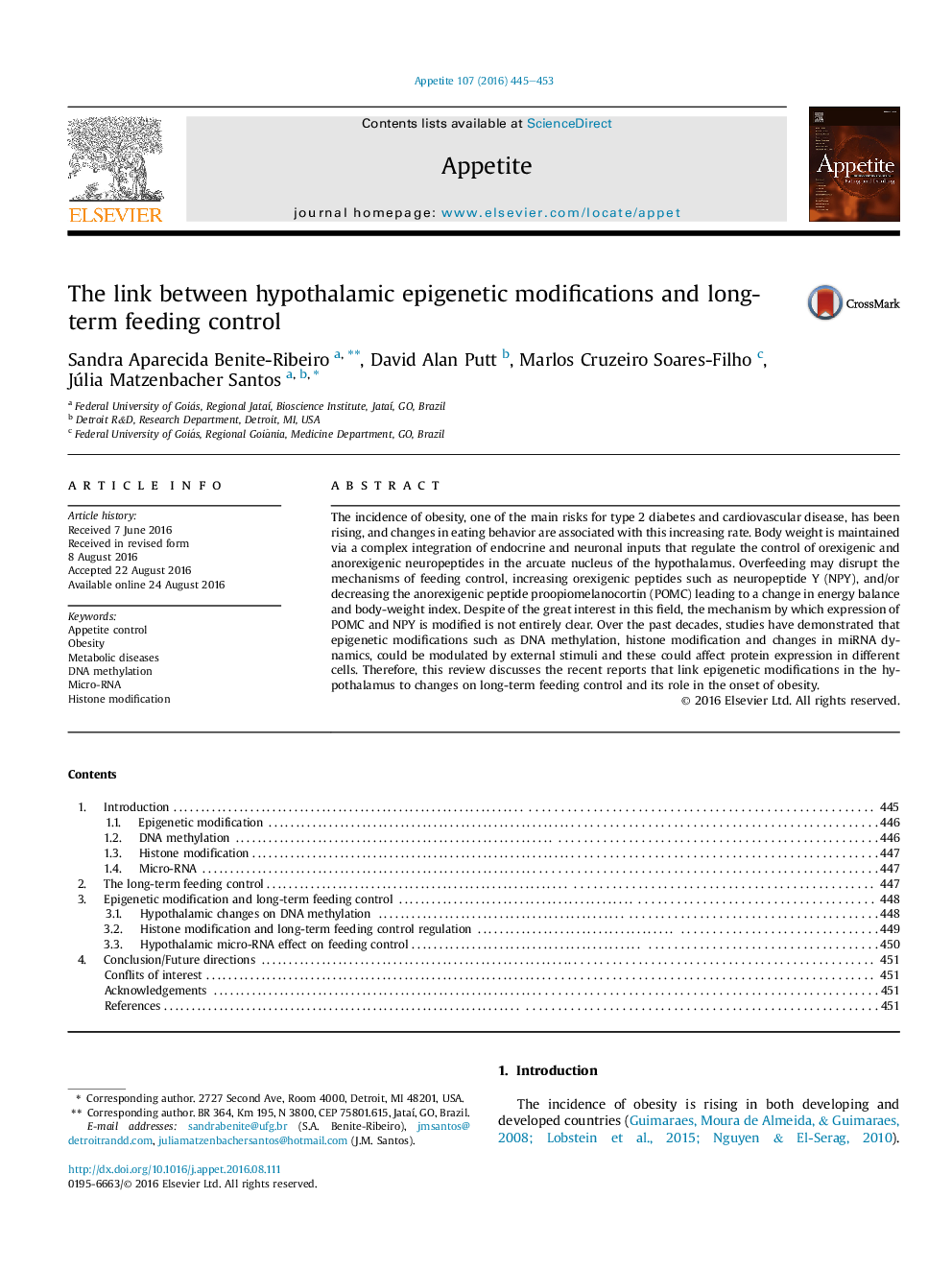| Article ID | Journal | Published Year | Pages | File Type |
|---|---|---|---|---|
| 7307392 | Appetite | 2016 | 9 Pages |
Abstract
The incidence of obesity, one of the main risks for type 2 diabetes and cardiovascular disease, has been rising, and changes in eating behavior are associated with this increasing rate. Body weight is maintained via a complex integration of endocrine and neuronal inputs that regulate the control of orexigenic and anorexigenic neuropeptides in the arcuate nucleus of the hypothalamus. Overfeeding may disrupt the mechanisms of feeding control, increasing orexigenic peptides such as neuropeptide Y (NPY), and/or decreasing the anorexigenic peptide proopiomelanocortin (POMC) leading to a change in energy balance and body-weight index. Despite of the great interest in this field, the mechanism by which expression of POMC and NPY is modified is not entirely clear. Over the past decades, studies have demonstrated that epigenetic modifications such as DNA methylation, histone modification and changes in miRNA dynamics, could be modulated by external stimuli and these could affect protein expression in different cells. Therefore, this review discusses the recent reports that link epigenetic modifications in the hypothalamus to changes on long-term feeding control and its role in the onset of obesity.
Related Topics
Life Sciences
Agricultural and Biological Sciences
Food Science
Authors
Sandra Aparecida Benite-Ribeiro, David Alan Putt, Marlos Cruzeiro Soares-Filho, Júlia Matzenbacher Santos,
